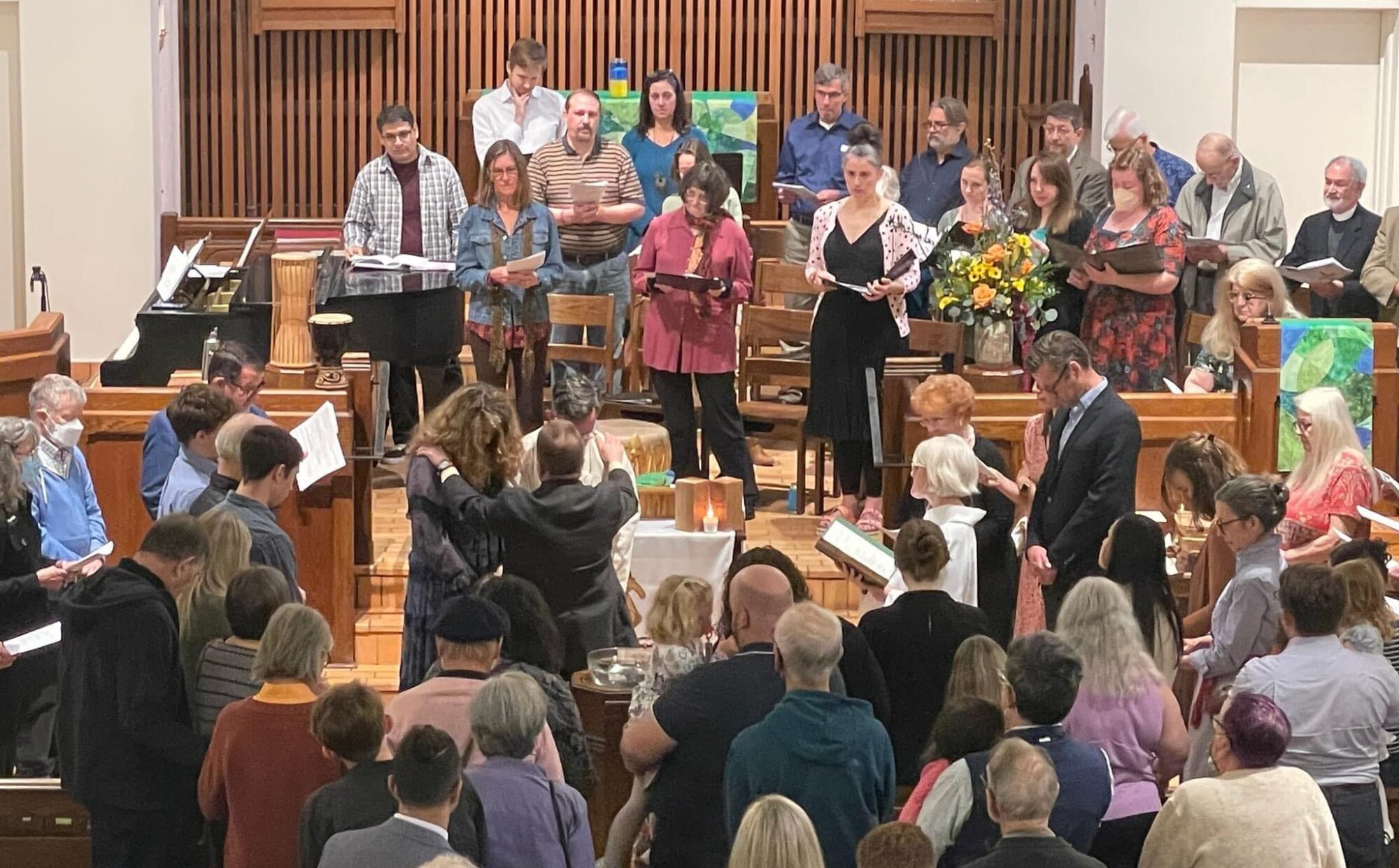In this post, we’ll be in regular connection with J. Mills, FELC transitional pastor.
27 June 2023
While I am uncertain of the future of my “musings” column, I thought I would broaden the conversation around a question received this week from one of our Siblings regarding the word “Evangelical” and its connection to both an expression of Lutheranism in the world and a movement of conservative Christianity sweeping the nationalist stage (addt’l context: https://statesman-tx.newsmemory.com/?publink=340f3abd2_134ac68). Here was my response to the conflicted-question: I am reminded of one of the Dwelling in the Word passages we use in Holy Fork in the Road Ministry, John 2:13-22. Verse 17 reads:
(First Nations) 17The ones who walked the road with him listened and remembered the ancient prophecy, “My desire to honor your sacred lodge burns like a fire in my belly.”
(NIV) 17 His disciples remembered that it is written: “Zeal for your house will consume me.”
(NRSV-A) 17 His disciples remembered that it was written, ‘Zeal for your house will consume me.’
(New Life) 17 Then His followers remembered that it was written in the Holy Writings, “I am jealous for the honor of Your house.”
I share these multiple translations (versions) because I think that’s what we’re experiencing here around the idea of Evangelical (of or according to the teaching of the gospels of the second testament). A word is always defined by its use; the definition itself has no power in connection to the word but instead to the context of the usage. Context provides the definition, and we have a separation of contexts (etymologies) over time regarding the opportunity to experience zeal for the word ‘evangelical’, or ‘evangelical’ as a synonym for the negative aspects of the experience of zeal as a zealot or being zealous. Many of us would love to think that this current rise of Evangelical as a synonym for ‘zealot’ as new, and yet this manifestation of a ‘Christianity’ in this nation, specifically, is not new and you may be interested to know that the conflicted use of ‘evangelical’, as used today, has not yet crested its height of vogue in the 1840s (I wonder what could possibly have sparked that rise…?).
Now: scripture. In the four translations I’ve offered we have two starkly different understandings. Three translations seem to agree that zeal is a positive quality, a yearning that offers us an invitation to just be in God’s reality of moving heaven into earth with our entirety; every cell and sinew moving together to support and show God to our siblings. Then there’s this fourth translation that invites this sinful manifestation of jealousy into the mix, as though a) Jesus were at odds with God about how one might be honored OR b) experiencing the honoring of the world in PLACE of God in a space that is meant to be sacred (this latter opportunity makes the most sense in the entirety of our experience, but the former can’t be discounted just because we don’t like it; language is funny that way).
So where is it written that our historical friends, the disciples, finally remembered? Psalms, of course: (sticking with New Life because that’s where we get this idea of jealousy) ” 9 For the strong desire for Your house has burned me up. And the bad things said about You have fallen on me.” Now… no ‘jealousy’ here. How did we end up with jealousy in the Second Testament rehash of this psalmody where v.9 clearly does not invite us into a Hebrew understanding of jealousy at all? I blame Greek (as we all should) for having used the word ζῆλος (zelos) which, in English, can be translated as zeal (huh, weird that) or jealousy. We would not use these words interchangeably like this today, but was there a time? Nope, no there was not a time when English interchanged these words. Then it must be that the Greek invites us into the description of an emotion of consumption: either you are consumed in favor of something and desire a whole-self-support of that thing (zeal) or you are fully consumed against something and view it as an utter rival to your being (jealousy).
My question, in light of all of this: does it matter what Evangelical means or is the context more important? If for us the context is “of or pointing to the gospel” how are we living that, and do we describe that as evangelical in the face of continued coopting of a term that Luther (re)claimed in the 1500’s? I refer what we are called to be, in accordance with the gospel: loving. If that’s how people experience me then that’s how I hope they experience God and evangelical is just another word that might point to a thing that people do… by and large “evangelical” doesn’t point to love as the greater populace of the world understands it and, maybe? Never has.
I invite continued discourse around this and everything happening around here (and you 😉 ). I look forward to returning from a northern trip to temperatures my body is better suited for in time for our Pride 2.0 celebration with our Sibling RIC churches; sign up and show up on both the 12th and 13th of August (also blessing the back-to-school crews)! While I am gone (from 31Jul to 11Aug), please reach out to Pastor Sharolyn Browning for your pastoral care needs: (512) 289-2732. Peace+ be with you.
You can connect with Pastor J at: pastor@felcaustin.org | 512-478-1933 | 443-846-9203

